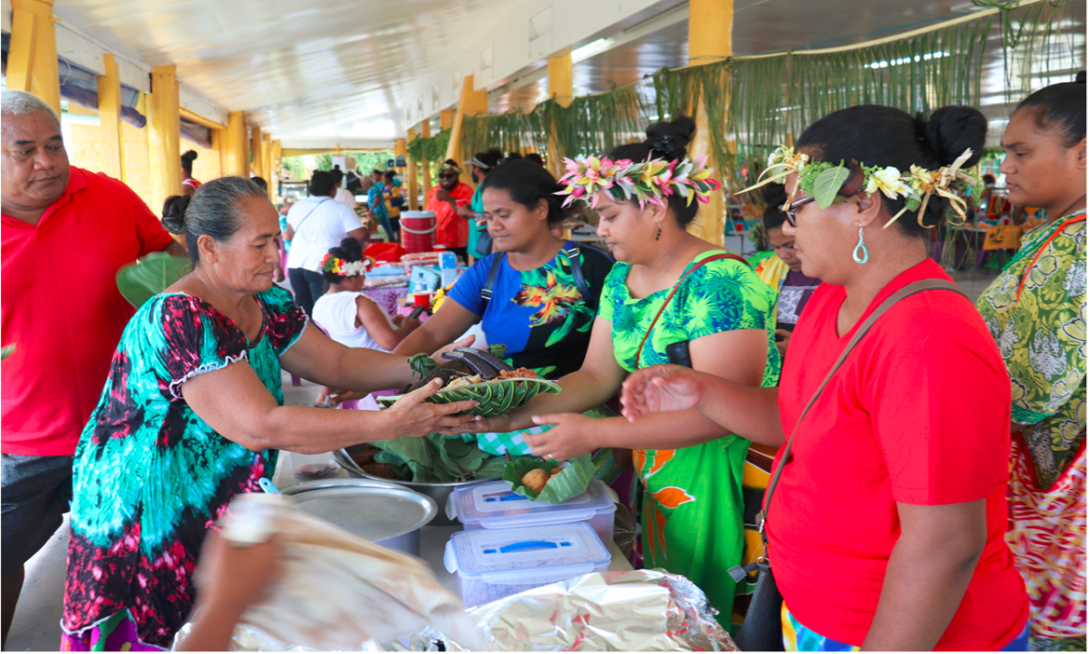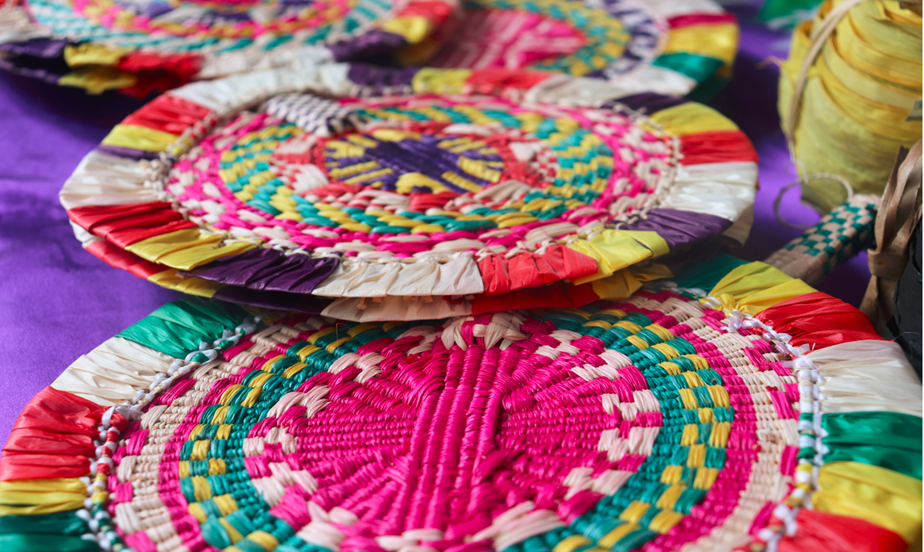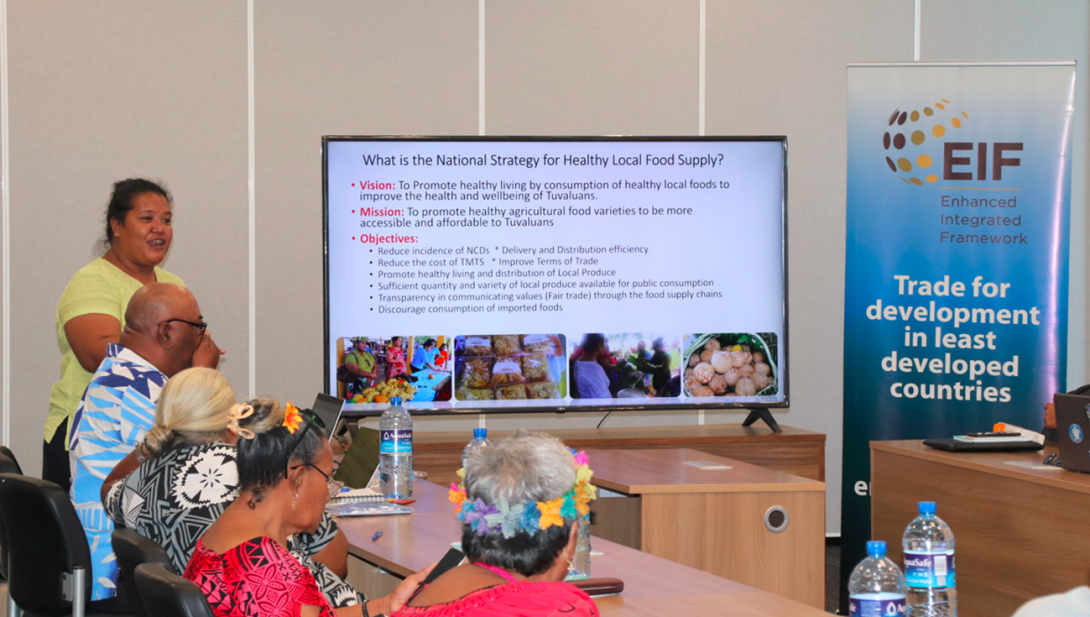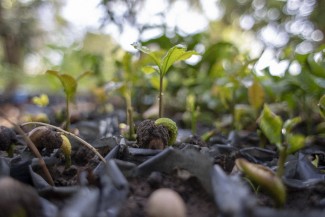Originally published in the fDi intelligence on March 24, 2022.
Threatened by rising seas due to climate change, and isolated by the coronavirus pandemic, the small South Pacific nation of Tuvalu looks inside for solutions
Until Foreign Minister Simon Kofe addressed the COP26 Climate Conference in Glasgow while standing in knee-deep seawater, many people had never heard of Tuvalu. Even fewer had seen, first-hand, the impact of climate change on low-lying Small Island Developing States like Tuvalu.
Located midway between Hawaii and Australia, the tiny island archipelago in the South Pacific Ocean is the fourth-smallest nation in the world with a population of 12,000. Global warming and melting ice caps have led to rising sea levels, creating widespread negative impacts.
The islands that makeup Tuvalu are small and narrow. At its widest point the capital, Funafuti, is only 600 meters across and the land is only about two meters above sea level. Rising water levels have affected fishing and farming, the two main economic activities. And when the coronavirus pandemic broke out, closing borders and freezing trade and tourism, it left Tuvalu caught between the devil and the deep blue sea.
“Our borders are completely shut,” says Ms. Tilou Kofe, CEO of Tuvalu National Private Sector Organization. “We had to go hard and fast because we knew we didn’t have the healthcare infrastructure to be able to cope with a pandemic. Right from the beginning, the pandemic has seriously impacted a large group of Tuvaluans. Many rely on tourist dollars to make their weekly income.”
Tuvalu’s public health response to the pandemic of battening down the hatches, worked; by March 2022 the country was yet to register a confirmed COVID-19 case according to the World Health Organization. But for a small island nation dependent on links and trade to the outside world, this sparked economic challenges overnight.
Isolated, Tuvalu turned to improving its internal trade. In October 2020 the Department of Business, with support from the Enhanced Integrated Framework, (EIF) launched the Tau Maketi (your market) initiative to help vulnerable small businesses play a more active role in Tuvalu’s domestic market and make up for diminished foreign demand.

Market fees were waived to encourage small businesses to participate. The committee in charge also set up stalls, tables, chairs and covered the costs of transporting products from homes as well as ferrying traders from nearby islets.
Tau Maketi is a small but important step in alleviating the economic pain felt by many Tuvaluans. By bringing small businesses together to sell their locally made products, including handicrafts, paintings, clothing and cooked food, struggling local sellers are finding a domestic lifeline in this monthly initiative.
Although it popped up in the middle of the pandemic, work had been going on for many years to make Tuvalu’s producers more resilient at home and more competitive in regional and wider markets.

As far back as 2010 the Ministry of Fisheries and Trade, with the support of partners, led a Diagnostic Trade Integration Study which mapped the country's comparative advantages and improved trade policy-making. The collaboration between EIF and the Government of Tuvalu, which has grown from roughly $150,000 to a cumulative commitment of approximately $3.2m, has enabled Tuvalu to develop its Trade Policy Framework and integrate trade, ecommerce, and the private sector, into its national development priorities.
Partners like EIF and the UN Development Programme (UNDP) have supported the Government of Tuvalu to use aid-for-trade initiatives to build its capacity to better leverage trade for economic resilience, growth and poverty reduction.
Land ahead?
It is too early to say that Tuvalu is out of stormy seas, but there are promising signs of a firmer footing ahead. The country needs investment in various sectors, including infrastructure, communications, health, and education. The government is driving the agenda, charting the course, and mobilizing investments, including from international development partners.
For example, the Ministry of Fisheries and Trade is matching funds from international partners to continue building the capacity of its staff. This self-reliance is already showing promise: Tuvalu designed its own government-led action plan to retain this critical technical ability. It also readily co-financed a targeted sustainability support project, unlocking additional co-financing from UNDP to deliver a resource-mobilization plan and mainstream trade.
Tuvalu’s idyllic white-sand beaches and the beautiful blue waters around it remain an under-exploited resource and the country’s tourism industry is the smallest among the small island states in the South Pacific, according to the Pacific Business Monitor. With EIF support, Tuvalu is preparing a sustainable tourism policy to highlight the country's unique offerings, increase resilience, create jobs, and diversify the economy. The project also includes a business incubator and strategic thinking around how to position Tuvalu’s exports in key international markets.
Tuvalu’s environmental challenges were clear before COVID-19, but the pandemic compounded the country's challenging economic context and highlighted the need for resilience.
The tide appears to be turning, at least on the economic front. A survey by the Pacific Business Monitor found that 44 per cent of businesses in Tuvalu reported a negative impact from COVID-19 but the number of those reporting a decline in business – 32 per cent – was the lowest since tracking began. In fact, 96 per cent of respondents in Tuvalu said they were confident that their businesses would survive the pandemic.
There is little the people of Tuvalu can do, on their own, to reverse climate change beyond rolling up their trousers to show the world why it needs to act quickly. As the seas rise around them the people of Tuvalu remain optimistic that the world will work to meet the environmental pledges made at COP26 to keep them from going under. In the meantime, they are trading amongst themselves and finding new ways to be more resilient and competitive.

Photos by Tuvalu Department of Trade
If you would like to reuse any material published here, please let us know by sending an email to EIF Communications: eifcommunications@wto.org.


